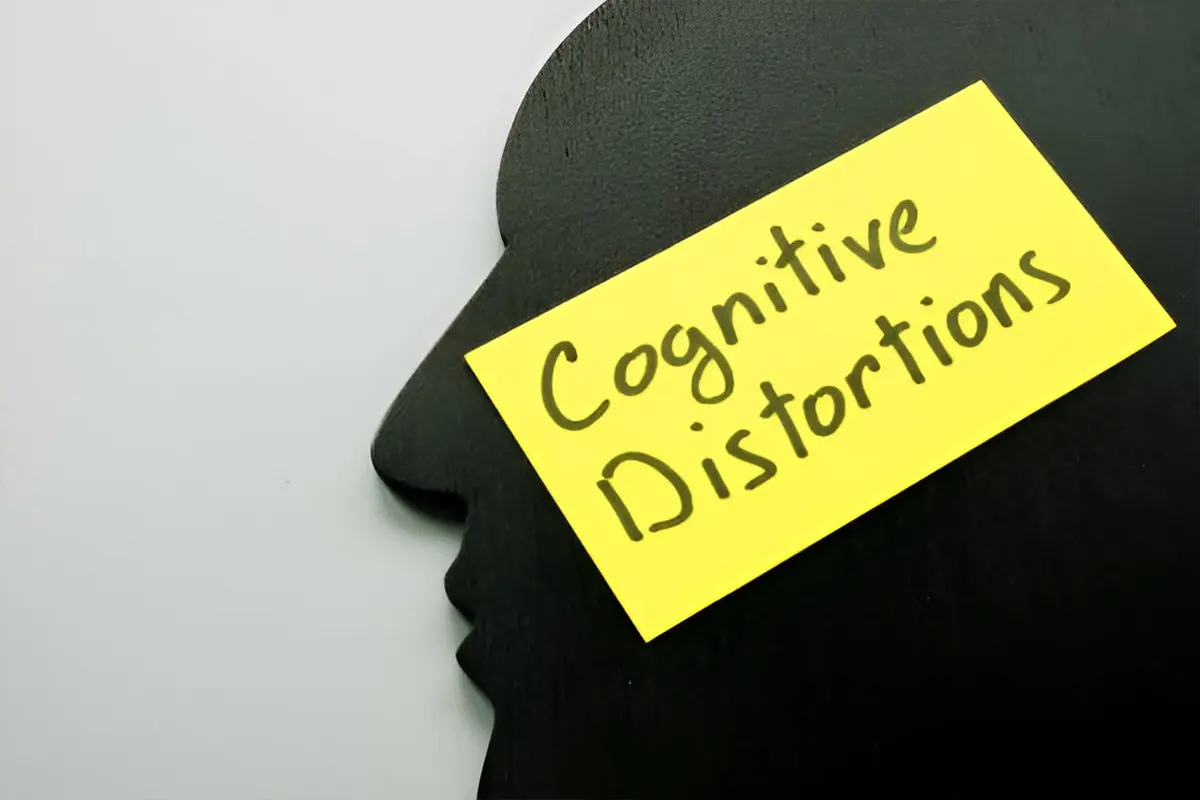Mental clarity is essential for a productive workplace. Yet, many employees unknowingly battle internal thought patterns that distort reality, known as cognitive distortions. These mental traps not only affect individual performance but ripple across teams and departments, undermining overall workplace productivity.
In today’s fast-paced corporate culture, fostering employee well-being goes beyond physical health; it also means nurturing mental resilience. Understanding and addressing cognitive distortions is a critical step toward creating a more focused, healthy, and innovative workforce.
In this blog, we’ll cover what cognitive distortions are, their impact on workplace productivity, how employers can address them, and how leaders can support mental well-being.
What Are Cognitive Distortions?
Cognitive distortions are irrational or biased ways of thinking that reinforce negative beliefs or emotions. Coined in cognitive behavioral therapy (CBT), these mental habits often go unnoticed but have a powerful effect on perception and behavior.
When left unchecked, these patterns hinder emotional balance, decision-making, and communication, core components of productivity. According to the American Psychological Association, distorted thinking can lead to anxiety, depression, and burnout, all of which are barriers to sustained performance.
In the workplace, where pressure, deadlines, and interpersonal dynamics dominate, such distortions often amplify, diminishing an employee’s ability to perform at their best.
Common Cognitive Distortions in the Workplace
Recognizing common distortions is the first step toward neutralizing their impact. Here are a few that frequently surface in professional environments:
1. All-or-Nothing Thinking
Employees may see outcomes as either complete success or total failure. For instance, if a presentation isn’t perfect, they feel it was a disaster. This mindset discourages effort and growth.
2. Overgeneralization
Drawing sweeping conclusions from one event—like assuming a single missed deadline means they’re incompetent, can erode self-confidence.
3. Catastrophizing
This involves blowing problems out of proportion. A minor error feels like it will lead to getting fired, creating unnecessary stress and distraction.
4. Personalization
Employees blame themselves for things beyond their control, like a client’s dissatisfaction due to a team issue. This often leads to guilt and burnout.
These thought patterns can develop under high work pressure, especially in environments lacking psychological safety. Without intervention, they become recurring mental habits that hinder employee well-being and job satisfaction.
How Cognitive Distortions Affect Productivity
Distorted thinking doesn’t just affect the individual; it shapes how teams function and how businesses perform.
1. Decreased Confidence and Decision-Making
When employees constantly doubt their worth, they’re less likely to take the initiative or trust their judgment, leading to delays and second-guessing in decision-making.
2. Increased Absenteeism and Burnout
Unchecked stress from negative thinking contributes to emotional exhaustion, which can result in frequent sick leaves, disengagement, or complete burnout.
3. Miscommunication and Strained Teamwork
Cognitive distortions can twist how employees perceive feedback or interpret colleagues’ actions, leading to conflict and poor collaboration.
4. Reduced Innovation and Motivation
Employees trapped in fear-based or perfectionist thinking often avoid creative risks. This stalls innovation and reduces enthusiasm for contributing fresh ideas.
According to Mind Share Partners, companies that fail to address employee mental health risks increase turnover and decrease productivity.
Addressing Cognitive Distortions as an Employer
Leaders have a unique opportunity and responsibility to help reshape the narrative around mental wellness at work. Here’s how:
1. Promote Mental Health Awareness
Create open forums and educational sessions that normalize conversations about mental health. This reduces stigma and encourages early intervention.
2. Provide Access to Counseling or EAPs
Employee Assistance Programs (EAPs) offer confidential support and resources to help employees manage mental challenges, including cognitive distortions.
3. Encourage Mindfulness and Stress Management Training
Workshops on mindfulness, meditation, and emotional regulation empower employees with tools to recognize and reframe negative thoughts.
4. Build a Culture of Psychological Safety
When employees feel safe to express concerns without judgment, they’re more likely to seek support, admit mistakes, and try new approaches without fear.
Investing in these strategies fosters a healthier workplace culture that enhances both employee well-being and workplace productivity.
Wrap Up
Cognitive distortions, though internal and often unseen, can significantly impact employee productivity. From reduced motivation to increased workplace conflict, their effects ripple across teams. However, by fostering awareness and creating a supportive environment, employers can empower teams to think more clearly, build confidence, and perform at their best.
Leadership plays a vital role in cultivating a culture that prioritizes mental wellness. Addressing these hidden challenges enables organizations to unlock their workforce’s full potential.
Looking to build a resilient, high-performing team?
Partner with Hire Labour for expert staffing services in Canada to strengthen your workforce and drive lasting productivity.
FAQs
1. What are cognitive distortions?
Cognitive distortions are irrational, negative thought patterns that distort reality and influence emotions and behaviors. Common examples include catastrophizing, personalization, and all-or-nothing thinking.
2. How do cognitive distortions affect workplace productivity?
They lead to decreased confidence, miscommunication, burnout, and reduced motivation, all of which hinder effective performance and collaboration.
3. Can employers help reduce cognitive distortions?
Yes. By promoting mental health awareness, offering counseling, and creating a psychologically safe environment, employers can support employees in identifying and managing cognitive distortions.
4. Are cognitive distortions a mental health disorder?
No, they are not a disorder themselves but are common symptoms or contributors to conditions like anxiety and depression.




